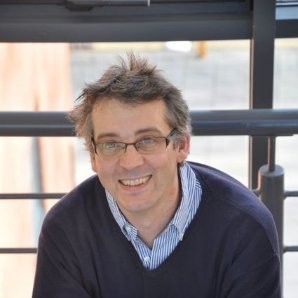Closing date: 07/03/2025
MB-PhD Project: MYST Histone Acetyltransferases as Therapeutic Targets in Acute MyeloidLeukaemia
Lead Supervisors: Prof. Georges Lacaud
Co-Supervisors: Prof. Tim Somervaille, Dr Daniel Wiseman, Dr Sam Butterworth
Applications Deadline: Friday 7th March 2025
Project Keywords: AML, Epigenetic, Therapies
Research Opportunity: Intercalated PhD, leading to the award of PhD and MBChB
Project Outline
Cytotoxic therapy has been the standard of care over the last 30 years for Acute Myeloid Leukaemias (AMLs). Unfortunately, more often than not, it fails to cure patients, and the 5 years survival rate is only around 20%. Therefore, there is a pressing need for the development of more specific and efficient therapies. To this end, the Stem Cell Biology laboratory investigates the mechanisms driving initiation and maintenance of leukaemia. Our overarching goals are to improve patient outcomes by identifying and validating therapeutic targets for leukaemia treatment.
We, like others, have recently identified the histone acetyltransferases (HAT) of the MYST family as genetic dependencies in AML, and in particular some of the most aggressive AML, MLL-related AMLs (MLL-r). However, MLLr AMLs represent a spectrum of translocation and clinical disease. In this proposal, we will first define the subtypes of MLLr AML dependent on these HATs which may benefit from targeted therapy using shRNA, CRISPR, inhibitors and PROTACs strategies to target these HATs. We will also explore the potential benefits of targeting these HATs in other AMLs, notably, NPM1 mutated AMLs that have strong molecular similarities with MLLr. We will then explore at the molecular level through single-cell RNA-seq and ChIP-seq approaches how targeting these HATs disrupts the expression of crucial genes for AML maintenance and facilitates cell apoptosis or differentiation. Finally, we evaluate the effectiveness of combining HAT-targeting strategies with established or novel drugs both in vitro and in animal models.
These comprehensive studies will employ in vitro biochemical and cellular assays, in vivo mouse models, and gene transcription and chromatin assays, providing extensive training in cellular and molecular haematopoiesis, oncology, state-of-the-art single cell technologies, and mouse modelling.
About Prof. Georges Lacaud (project Lead Supervisor)
Georges graduated as a biotechnology engineer from the European Biotechnology School of Strasbourg (ESBS) in Strasbourg, France. He obtained his PhD from the University Louis Pasteur of Strasbourg, France and then did a postdoctoral fellowship at the National Jewish Medical Center in Denver, Colorado, USA studying early lymphoid cell development in Prof. Gordon Keller’s lab. Georges next moved to the Mount Sinai School of Medicine in New York, NY, USA where he worked on early hematopoietic development.
In 2003, he joined the CRUK Manchester Institute as a junior group leader. He is a senior group leader and heads the Stem Cell Biology group. Georges was awarded a Professorship in Stem Cell Biology at The University of Manchester in 2018.

About the lab group
Find out more about the lab group involved in this project and how we support your wellbeing, learning and career development.
I aim to inspire enthusiastic scientists and clinician-scientists to delve into the mechanisms driving the initiation and maintenance of leukaemia, employing state-of-the-art methodologies to develop innovative approaches for treating AML patients.
Within our laboratory, we share technology expertise to work toward shared goals. As such, each person has clearly defined projects and opportunities to contribute to other projects. We have weekly group lab and journal club meetings. I meet personally with each person weekly and maintain an open-door policy.
I aspire to oversee a motivated individual capable of adapting to the lab environment, eager to learn, and prepared to take ownership of their project. This individual should also actively contribute to team spirit, scientific achievements, and collaborative publications.
I strive to promote heightened ownership and independence among my PhD students throughout their studies. Furthermore, I aim to engage in discussions with them, alongside the supervisory team, regarding their career development.
The supervisory team will offer mentorship, provide career guidance throughout the project, and ensure, with the advisor, the student’s overall well-being is supported.
I emphasize and actively endorse a balanced lifestyle for my PhD students, allowing some flexibility in lab attendance. I acknowledge that nurturing well-being beyond the laboratory setting not only boosts overall productivity but also enhances scientific creativity.
Key information
Find answers to some common questions about our MB-PhD Studentships.
To apply to intercalate onto the PhD in Cancer Sciences component of the MB-PhD, you must meet the below criteria and satisfy the general requirements for permission to intercalate set by your institution, including passing all components of the MBChB at first attempt in the year prior to intercalation.
A University of Manchester MBChB student
- holding a BSc (hons) 2.1 or above in a relevant subject and in year 2 or year 3 of the MBChB or year 1 or year 2 of GEM; or
- currently studying in year 3 of the MBChB or year 2 of GEM
A University of St Andrews Medicine BSc (Hons) student on the Manchester course pathway:
- holding or predicted a BSc (hons) 2.1 or above and be intending to intercalate straight onto the MB-PhD ahead of your arrival in Manchester or by no later than between year 3 and year 4 of the Manchester MBChB programme
A University of Leeds MBChB student:
- currently studying in year 3 of the MB ChB
International applicants (including EU nationals) must ensure they meet the relevant academic eligibility criteria (including English Language).
The PhD component of the MB-PhD studentship is usually funded for three years, or four years in exceptional circumstances with prior agreement of MB-PhD Committee and supervisory team.
The studentship covers:
- An annual stipend of £21,000 per year to help with living costs
- Full funding for your PhD tuition fees (at the UK rate, with fee bursaries available for high-performing EU/International candidates)
- PhD project consumables and running costs, including costs for researcher development such as conferences and travel
- MBChB tuition fees (at the UK rate) for a maximum of four years
Here are our quick steps to apply for our MB-PhD:
1. Eligibility
First, you need to check you are eligible to apply for an MB-PhD. Please see the eligibility tab (above) to read all criteria.
2. Contact supervisors
You can explore the range of MB-PhD opportunities that are open to application on our Research Opportunities webpage.
We encourage you to contact the supervisor of any MB-PhD projects that you are interested in before starting your application. Having these conversations will help you to get a feel for the different research themes and projects on offer.
3. Register
Register to apply for our MB-PhD opportunities using the Postgraduate Application Form. You must create an account to register.
4. Create a new application
When you create a new application make sure you select the following:
- Academic Career – Postgraduate Research
- Mode of Attendance – Full-time
- Program Description – search for MB-PhD and then select the MB-PhD Programme
- Candidates apply for the MB-PhD programme – under ‘Research Title’ list MB-PhD Programme. You can provide supervisor preferences/research interests in your accompanying supporting statement and these will be considered at and after interview
- If you are shortlisted, you’ll be interviewed by the MB-PhD Programme Directors and Education Committee before being accepted onto the programme “in principle”. You will be matched with a supervisor based on your interview performance and project/research preferences
- If successful at interview, you will be asked to meet with a nominated MB-PhD supervisor in the subsequent week for them to review and approve your PhD offer
- For funding sources, please include the following information:
– Select ‘Yes’ from the drop-down
– Type of Funding: University of Manchester Scholarship
– Awarding Body: Cancer Research UK MB-PhD
– Status of Funding – Awarded
– Funding Covers – Fully Funded
– Leave the remaining boxes blank
5. Supporting documents
Your application form must be accompanied by several supporting documents:
CV
This should include:
- qualifications (GCSE, A-level or equivalent, and any higher education qualifications, including grades, and your current programme)
- academic prizes, research projects, and academics interests
- extracurricular interests, and activities and positions of responsibility relevant to your application
The information you provide in your CV will be considered in relation to widening participation, and/or university access policies, to ensure that all applicants are treated fairly.
Supporting statements
This should be 1,000 words maximum and include your reason for applying to the MB-PhD programme and your interest and suitability for the project. You can include project/research interest/s here and these will be considered at and post-interview.
References
You need to list two referees, one of which must be an academic referee from The University of Manchester, The University of Leeds or The University of St Andrews-Manchester pathway MBChB programme.
This could be a:
- Clinical debrief tutor
- PEP tutor
- Literature research project supervisor
- PPD tutor
References cannot be submitted by a supervisor named on the project you are applying for.
Supporting documents can be uploaded and submitted with the online application form.
If you have any issues, your supporting documents can be sent directly to the Doctoral Academy Admissions Team at admissions.doctoralacademy@manchester.ac.uk, CC’ing in mcrctraining@manchester.ac.uk.
6. Acknowledgement and review process
Once you have submitted your application form, we will email you with an acknowledgement.
We will review your application after the application deadline and once we’ve received all your supporting documents. If successful at interview, we will also share your application with a nominated supervisor(s) to review.
7. Interviews
7. Interviews
We will email you if you are invited to interview.
Interviews will take place at the Oglesby Cancer Research Building in Withington in Spring 2025.
8. Applying to intercalate
UoM MBChB students must complete an intercalation Expression of Interest form by Friday 24th January 2025 (we may be able to consider late applications to intercalate in exceptional circumstances). This form is available on 1MedForms via the following link: https://www.onemedforms.manchester.ac.uk/
UoL MBChB must apply to intercalate via UoL processes by Friday 24th January 2025.
University of St Andrews Manchester pathway students can contact mcrctraining@manchester.ac.uk for guidance.
Key dates
- Intercalation deadline: Friday 24th January 2025
- Application deadline: Friday 7th March 2025
- Interviews: w/c 28th April 2025
- Start date: September 2025
Useful Links
MB-PhD Studentships
Find out more about our MB-PhD Studentships which allow you to study a fully-funded PhD alongside your medical degree.
Get in Touch
Contact Dr Georgina Binnie-Wright, Postgraduate Programme Manager.
A Day in the Life of an MCRC MB-PhD Student
Watch our short video to see what it's like to be an MB-PhD student in Manchester.
Researcher Stories
Read first-hand experiences of from cancer scientists from across Manchester.
Why Manchester?
Find out why postgraduate students choose to study in Manchester.





